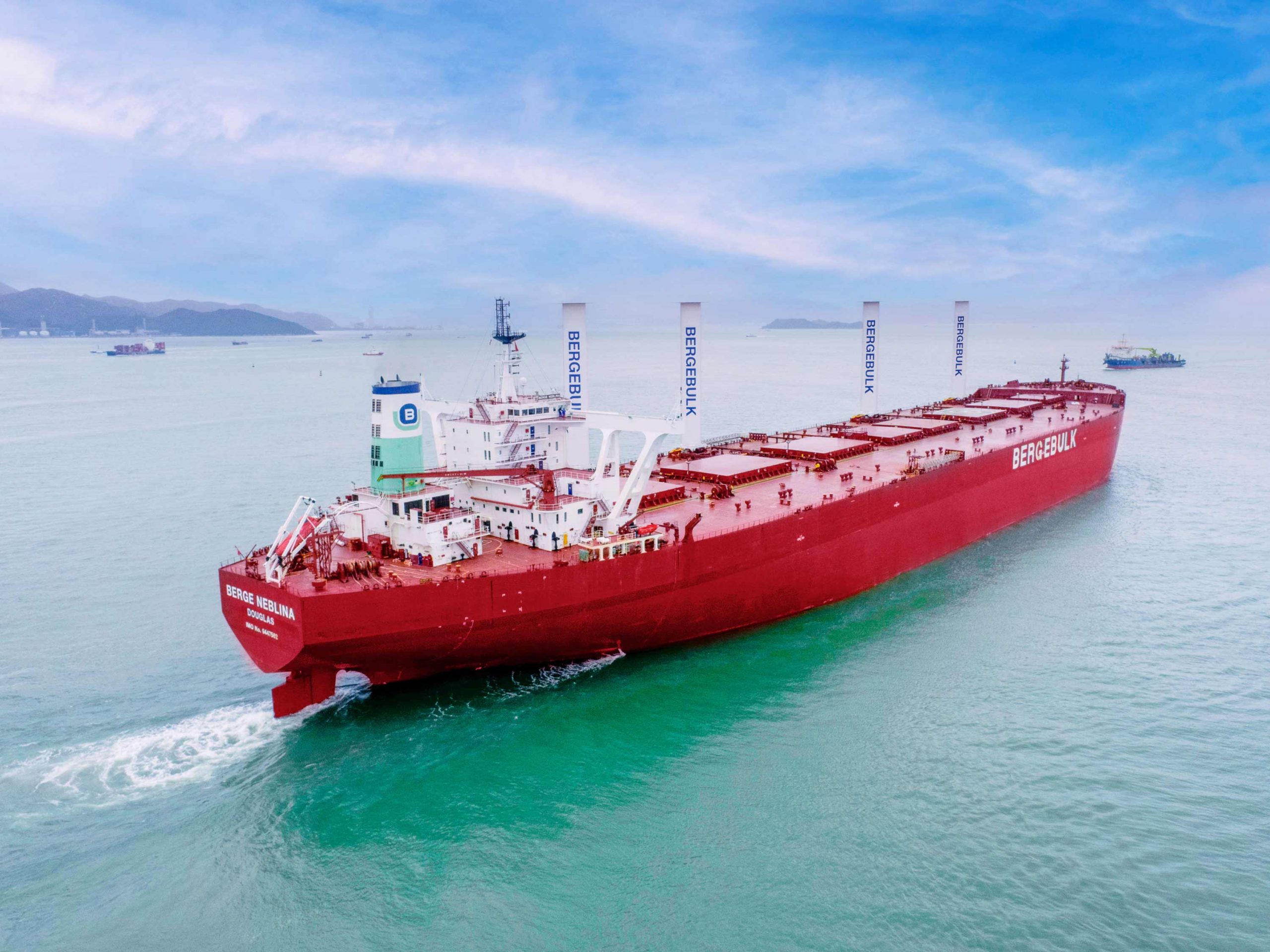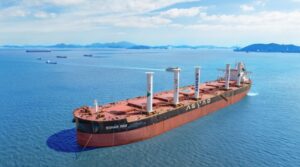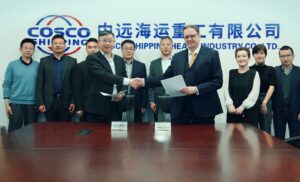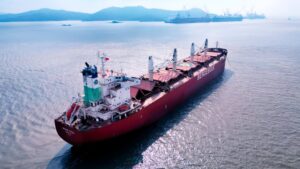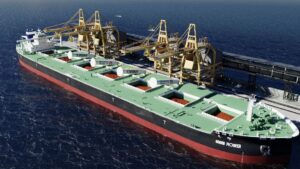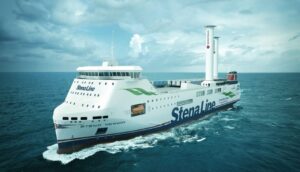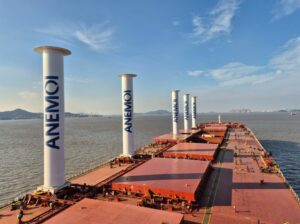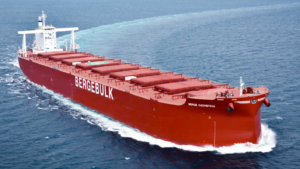Berge Neblina sets sail with four Anemoi rotor sails
Berge Neblina, a 388,000 dwt Valemax ore carrier owned by Singapore-based shipping company Berge Bulk, is on its way to Brazil following the installation of rotor sails provided by the UK-based wind-assisted propulsion provider Anemoi Marine Technologies.
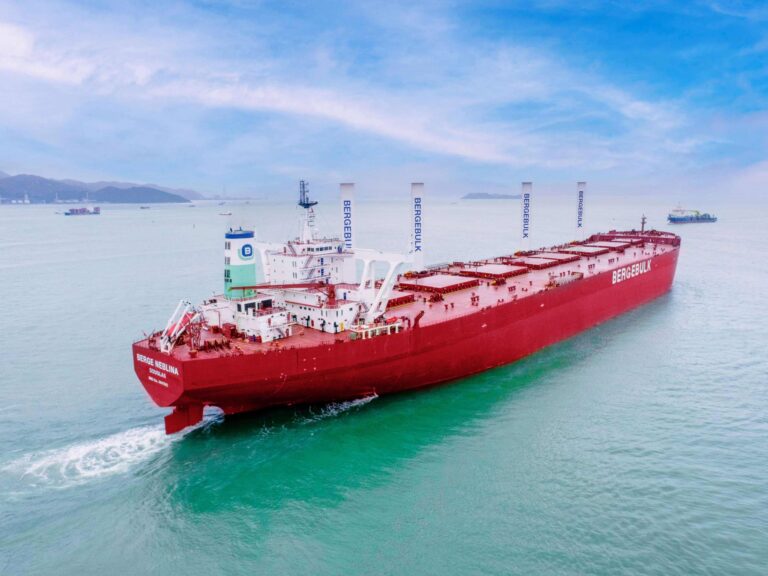
The installation, which took place during the vessel’s scheduled dry docking, was completed at Yiu Lian Dockyards (Shekou) in China.
The four 5x35m rotor sails have been installed on Anemoi’s folding deployment system, whereby the sails can be folded from the vertical to mitigate the impact on air draught and cargo handling operations when in port.
With the newly installed Rotor Sails, Berge Neblina is expected to save more than 1,000 tonnes of fuel annually, according to Berge Bulk.
“Leveraging the latest in wind technology to reduce our fleet’s emissions is an important part of Berge Bulk’s ‘Maritime Marshall Plan’ for decarbonisation. We are optimistic that these Rotor Sails can deliver up to 8% carbon reduction,” Paolo Tonon, Technical Director of Berge Bulk, said.
“Anemoi’s collaboration with Berge Bulk demonstrates how we are both working in partnership to ultimately secure shipping’s zero-emission future,” Kim Diederichsen, CEO of Anemoi Marine Technologies, noted.
Rotor sails, also referred to as ‘Flettner Rotors’, are comprised of vertical cylinders which, when driven to rotate, harness the renewable power of the wind to propel ships. These highly efficient mechanical sails capitalize on the aerodynamic phenomenon known as the Magnus Effect to provide additional thrust to vessels.
By leveraging wind energy, Berge Neblina will see increased efficiency by reducing the load on the main engine while maintaining speed, therefore substantially reducing fuel consumption and resulting in less greenhouse gas emissions.
The technology is being increasingly embraced by ship owners, especially in the bulk sector, who are aiming to achieve net-zero shipping emissions. Rotor sails have emerged as a preferred technology to augment and enhance the energy performance of vessels. The technology offers a large thrust force to propel ships, helping them comply with pivotal international emission reduction benchmarks such as the Carbon Intensity Indicator (CII) and EEDI/EEXI.
This news follows a string of other decarbonization efforts announced by Berge Bulk in recent months. Last October, Berge Bulk unveiled four BARTech WindWings on Newcastlemax vessel, Berge Olympus.
Related Article
In March, Berge Bulk placed the order of two ammonia-fuelled bulkers for delivery in 2027.
Related Article
-
Berge Bulk orders two 210,000 dwt ammonia-powered bulkers
Business Developments & Projects
Meanwhile, the company is making steady progress with its commitment to fully offset all scope 1 emissions by 2025 and plant 25 million trees by 2026.
The company has also committed to building and operating a zero-emissions vessel by 2030 and achieving zero emissions fleetwide by 2050.

